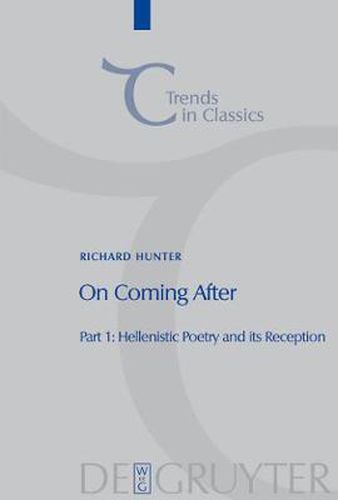Readings Newsletter
Become a Readings Member to make your shopping experience even easier.
Sign in or sign up for free!
You’re not far away from qualifying for FREE standard shipping within Australia
You’ve qualified for FREE standard shipping within Australia
The cart is loading…






This book gathers together many of the principal essays of Richard Hunter, whose work has been fundamental in the modern re-evaluation of Greek literature after Alexander and its reception at Rome and elsewhere. At the heart of Hunter’s work lies the high poetry of Ptolemaic Alexandria (Callimachus, Theocritus, and Apollonius of Rhodes) and the narrative literature of later antiquity (‘the ancient novel’), but comedy, mime, didactic poetry and ancient literary criticism all fall within the scope of these studies. Principal recurrent themes are the uses and recreation of the past, the modes of poetic allusion, the moral purposes of literature, the intellectual context for ancient poetry, and the interaction of poetry and criticism. What emerges is not a literature shackled to the past and cowed by an ‘anxiety of influence’, but an energetic and constantly experimental engagement with both past and present.
$9.00 standard shipping within Australia
FREE standard shipping within Australia for orders over $100.00
Express & International shipping calculated at checkout
This book gathers together many of the principal essays of Richard Hunter, whose work has been fundamental in the modern re-evaluation of Greek literature after Alexander and its reception at Rome and elsewhere. At the heart of Hunter’s work lies the high poetry of Ptolemaic Alexandria (Callimachus, Theocritus, and Apollonius of Rhodes) and the narrative literature of later antiquity (‘the ancient novel’), but comedy, mime, didactic poetry and ancient literary criticism all fall within the scope of these studies. Principal recurrent themes are the uses and recreation of the past, the modes of poetic allusion, the moral purposes of literature, the intellectual context for ancient poetry, and the interaction of poetry and criticism. What emerges is not a literature shackled to the past and cowed by an ‘anxiety of influence’, but an energetic and constantly experimental engagement with both past and present.